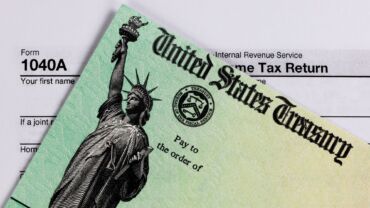Mandatory 60-Day Postponement of Certain Tax-Related Deadlines by Reason of a Federally Declared Disaster, 86 Fed. Reg. 31146 (June 11, 2021)
Available at https://www.govinfo.gov/content/pkg/FR-2021-06-11/pdf/2021-12311.pdf
The IRS has issued final regulations regarding the minimum 60-day extension of certain tax-related deadlines on account of “federally declared disasters.” The 60-day minimum appears in Code § 7508A(d), which was added by legislation enacted in 2019 (see our Checkpoint article). Generally, Code § 7508A(d) provides that the period beginning on the earliest incident date for a qualifying disaster, and ending 60 days after the latest incident date for the disaster, is disregarded for qualified taxpayers “in the same manner” as a period disregarded under Code § 7508A(a), which allows the Secretary of the Treasury to authorize extensions of certain acts. For purposes of the 60-day minimum, “qualified taxpayers” generally are individuals with a principal residence in the designated disaster area, taxpayers with a principal place of business in the area, relief workers working in the disaster area, taxpayers whose relevant records are maintained in the area, visitors killed or injured as a result of the disaster, and spouses of these persons. The legislation also added a 60-day minimum extension period for retirement plans, plan sponsors, administrators, participants, beneficiaries, and other persons for making contributions and rollovers, as well as certain IRA distributions and contribution recharacterizations.
Apart from the listed pension-related actions, the legislation was ambiguous in its description of the time-sensitive acts subject to the 60-day minimum and did not explain how the minimum extension is to be calculated when a disaster declaration lacks an incident date (as with the emergency declaration for the COVID-19 pandemic). The regulations seek to resolve these ambiguities, and to clarify the definition of a “federally declared disaster” that triggers the relief. Here are highlights:
-
Extensions Are Not Automatic. Under the regulations, the Secretary must determine which, if any, deadlines for time-sensitive acts will be extended due to a federally declared disaster. If no time-sensitive acts are postponed in response to a federally declared disaster, no acts are subject to the 60-day minimum.
-
Extension Period. The IRS typically provides a 120-day extension from the beginning incident date of disasters when extensions are authorized. 60-day periods under the new rule will generally run concurrently with the IRS’s discretionary relief. If the discretionary relief runs out first, the extension will continue until 60 days after the latest specified incident date (subject to the statutory maximum extension of one year). If a federally declared disaster has no specified incident date, the 60-day minimum will not apply.
-
Federally Declared Disasters. Disasters that can trigger the 60-day minimum extension include both major disasters and emergencies declared under the Stafford Act. This interpretation is supported by the Stafford Act’s legislative history and is consistent with past IRS revenue rulings.
-
Applicability Dates. The regulations clarifying the definition of a federally declared disaster are applicable on June 11, 2021. The remainder of the regulations are applicable for disasters declared on or after December 21, 2019.
EBIA Comment: The final regulations contain no surprises; they are nearly identical to the proposed version of the regulations except for revisions to an example. While some commenters argued that the extensions subject to the 60-day rule should be truly automatic, the IRS has maintained its position that the Secretary may choose to provide limited or no relief. As stated in the preamble, this does not render the new rule a nullity—indeed, one of the examples demonstrates how the 60-day minimum may increase the length of an extension when the IRS’s discretionary relief expires before the 60-day period—but it does substantially limit the new rule’s practical effect. For more information, see EBIA’s 401(k) Plans manual at Sections XIV.D.2 (“Waivers of 60-Day Rollover Rule”) and XVI.N.2 (“Administrative Plan Loan Relief”). See also EBIA’s Cafeteria Plans manual at Section XXXVI.I (“Administering a Cafeteria Plan During a Disaster or Emergency”).
Contributing Authors: EBIA Staff.







